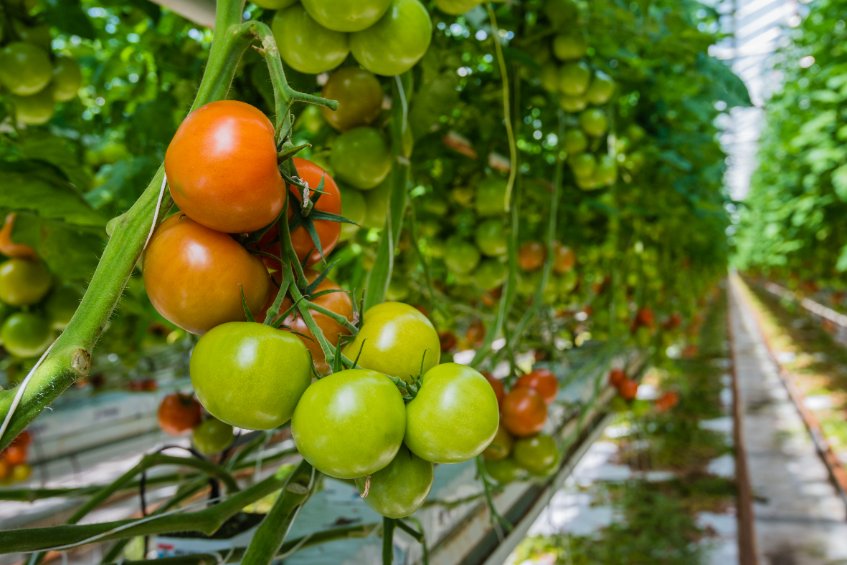
Plans to boost domestic fruit and vegetable production by driving the growth of high-tech horticulture has been set out by the Defra Secretary.
Ranil Jayawardena has pledged £12.5m investment in automation and robotics through the Farming Innovation Programme, on top of more than £70m spent so far.
The fund opens in January with UK Research and Innovation (UKRI), and projects that will drive economic growth, food security and deliver on environmental commitments will be match-funded.
Previous funded projects have included fruit scouting robots, automated vegetable harvesters and new types of fertiliser.
The government is particularly interested in glasshouse growing, a form of controlled environment horticulture. The sector currently represents only 10% of English horticultural businesses.
This means the UK only grows 25% of the cucumbers and 17% of the tomatoes supplied domestically, according to the government.
But businesses operating with this model are already seeing benefits, it says, such as extended growing seasons, efficient water usage and higher yields per square metre.
Mr Jayawardena said on Tuesday (11 October) that whilst the UK had a high degree of food security, it could be boosted further, and controlled environment horticulture was one way of doing so.
"We can increase home-grown fruit and vegetable production, which is why I am bringing in expert advice and match-funding robotics and automation projects," he said.
“Technology offers huge opportunities to make farming greener and more productive, so we should harness it to help grow the economy, create jobs and improve food security too.”
Last week, the Defra Secretary visited the Netherlands to learn more about high-tech greenhouse and vertical growing approaches.
He toured a robotics institute and a glasshouse business which uses artificial intelligence, robotics, renewable energy and water neutral systems to grow produce.
Mr Jayawardena also announced he will appoint an industry expert to help build a clearer picture of the barriers and opportunities in controlled environment horticulture.
They will provide a set of recommendations and policy interventions that the government can implement both immediately and longer term.
The Defra Secretary has also written to a number of major controlled environment horticulture growers to seek the industry’s views on how the government can support its expansion.
